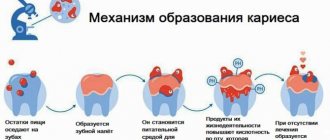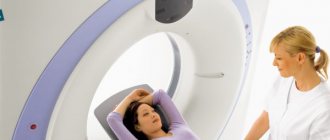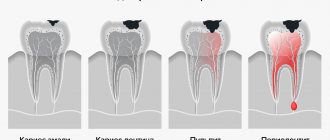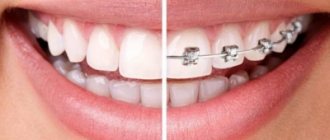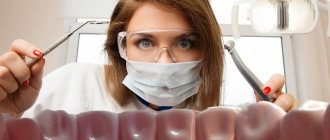June 9, 2019
Many of us live in big cities, where medicine is at the highest level. But this happens during the daytime and on weekdays, and at night, on holidays and weekends, we feel insecure and sometimes don’t know where to turn for help. For example, with an acute toothache that takes you by surprise and gives you no rest. What to do then? So the journalists from the editorial office of the UltraSmile.ru portal asked themselves this question. Let's look for answers to it together!
It’s good if you always have the city’s emergency and emergency phone numbers at hand, so that in the event of an unforeseen situation you can call and ask all your questions without panic. If there are no important numbers, then call the 24-hour helpline of the city or locality where you are currently located.
What to do if the pain takes you by surprise?
24-hour pharmacy
Do you agree that when a tooth hurts, the first thing we think about is not where to run, but how to relieve the pain? And accordingly, we take the right pill. Especially when trouble occurs late in the evening, at night or after hours. I don’t want to go or run anywhere during this period of time. But there are also such situations - you have a toothache, but at that very moment there was no analgesic in your home medicine cabinet: the medicine has run out, the expiration date of the medicine has expired. In this case, it would be a good idea to find out if there is a 24-hour pharmacy in the city and buy a medicine that will relieve unpleasant symptoms for a certain period of time and help you get a restful sleep. This could be Nurofen, Nise, Ketorol, Ketanov, Baralgin.
In the morning, of course, you need to make an appointment with a professional dentist or go without an appointment to any public dental clinic that accepts under the compulsory medical insurance policy.
A 24-hour pharmacy will help if the pain occurs late in the evening or at night
If you are in a village, in a country house, and there are no large settlements nearby, then try using simple folk remedies: a clove of garlic on the wrist, rinsing with soda-salt solution, chamomile, massage.
When none of the listed measures bring relief, then it’s time to think about more serious actions and contact a medical facility.
Dead tooth hurts
After the nerve is removed, the tooth may respond for some time with mild pain to pressure or biting, including at night. This is a normal reaction. In these cases, it is enough to take a painkiller tablet.
If the pain becomes twitching and intensifies, it means that the nerve was not completely removed or the doctor made mistakes related to cleaning the canals or installing a filling. The biggest problem is that neither pills nor folk remedies will help. Start looking for a doctor right away.
Urban emergency dental care centers
As a rule, these are ordinary clinics, which are supported by the state and the city, or an emergency room at a regional dentistry, where round-the-clock duty is organized. But even in the largest cities, such as Moscow, there are no more than one or two of them for the entire population. These clinics have an on-call room where you can go to resolve an emergency.
To be accepted at night or on holidays, it is enough to provide an identification document and a compulsory health insurance policy. It does not matter whether you belong to this organization at your place of residence or your official registration. It also does not matter which clinic you are assigned to.
For example, in Moscow there are two night departments: for children under eighteen years of age, you can count on help in emergency cases at Dentistry No. 28. The center’s specialists provide their services free of charge from 18:00 to 8:30 on weekdays. And also at any time of the day or night on holidays and weekends. For adults - emergency admission of all citizens is carried out by the State Budgetary Healthcare Institution 1 "Maxillofacial Hospital for War Veterans", opening hours from eight in the evening to eight in the morning.
Clinics that are supported by the state
For what types of pain and dental pathologies can specialists provide assistance at night:
- relieve acute pain syndrome in any type of dental problem,
- provide first aid for pulpitis, caries, periodontitis, alveolitis and periostitis, the presence of cysts and granulomas,
- stop alveolar bleeding,
- carry out emergency surgical intervention if the patient presents with jaw injuries, fractures and dislocations of teeth,
- remove a tooth: but not in the case of “eights”. Wisdom teeth removal is often considered difficult and requires a thorough diagnosis of the situation. Therefore, depending on the clinical case and the equipment of the clinic, the doctor may recommend that you come for an appointment during the daytime and make an appointment (although in case of an emergency, city clinics accept patients without an appointment).
Services here will be provided free of charge. The only thing you may need to pay for is an imported anesthetic injection before treatment.
“I am shocked by our city clinic in Chita. We arrived at night, there were four people in line for one doctor, we sat there for two hours. The pain was unbearable, the pills did not help. At the same time, the tooth was intact, there wasn’t even a filling on it, and it was unclear why it hurt. The doctor was rude and said, why are you coming here! You'd think we have nothing else to do at night! Without even looking properly, without x-rays and everything else, she offered to pull the tooth and pay 300 rubles for anesthesia!!! But shouldn’t modern dentists do everything to save the patient’s teeth and how can they be removed without even conducting a normal diagnosis? This is our free medicine and emergency care. The question arises: why be on duty at night if there is only one answer to all situations: we will delete them!”
Marina, woman.ru
Causes of toothache
Let us examine in more detail the reasons that provoke the appearance of various types of toothache in adults and children:
- Caries
- Exposure of dentin at the neck of the tooth
- Chips and cracks of traumatic origin
- Pulp inflammation
- Periodontitis
- Fluoride and calcium deficiency
- Wedge-shaped defect in the area of the tooth neck
- Abscess or purulent inflammation on the tooth root
- Angina and myocardial infarction
- Respiratory diseases
- Pathology of the temporomandibular joint
- Nervous system diseases
- Malignant formations in the maxillofacial area
- Severe stress
You may also experience toothache when wisdom teeth erupt; in this case, you need to consult a doctor to understand whether the tooth is developing correctly and whether there is enough space for it. In addition, one of the causes of toothache is inflammation due to poor treatment of caries and pulpitis. You may also experience toothache under the crown due to incorrect installation. Therefore, it is very important to take a responsible approach to choosing a clinic and a doctor.
If a patient has a toothache after dental treatment, then this is a normal reaction of the tooth to the intervention of a specialist. It goes away within 1-3 days. Toothache after tooth extraction is also a natural consequence of injury to surrounding tissues.
Private dentistry
Acute toothache caught you by surprise at night? People who do not want to spoil their nerves immediately understand where to go: private dental offices or clinics that work around the clock. Here, the service for dental treatment and pain relief, in most cases, will have to be paid according to the current price list. But help will be provided in a timely manner, without unnecessary hassle or questions, and you will feel comfortable.
Some private dentistry may provide free services under the compulsory medical insurance policy, but most often in such cases they ask to provide one more document: SNILS.
You can contact 24-hour private dental clinics
Also, most private dental centers have uninterrupted 24-hour and toll-free communication lines for support and consultation of patients. Therefore, you can always call such a service and get clear recommendations on how to proceed.
Advantages of treating teeth with acute pain at the “Personal Doctor” clinic
Our dental clinic provides a wide range of services, including diagnosis, treatment, prevention of dental diseases, orthodontic treatment, installation of orthopedic structures, dental implantation, etc.
Advantages of the Personal Doctor clinic in Moscow:
- availability of the latest diagnostic and treatment equipment from Italy, USA, Germany, modern instruments. We have laser devices at our disposal that allow us to painlessly and contactlessly treat a diseased tooth;
- sterility, compliance with sanitary and hygienic standards, use of sterilized instruments;
- discounts and promotions for clinic services;
- Dental treatment is possible in installments without interest;
- we treat teeth without pain;
- free consultation.
Regular trauma center
If there are no 24-hour dentists in your city, then there are definitely trauma centers. Yes, the doctors on duty are not dentists and will not be able to cure your tooth, but they will be able to select medications that will relieve acute pain and help you last until the morning.
Help can also be provided at a trauma center.
If an institution operating in accordance with health care standards and providing services under the compulsory medical insurance policy refuses to accept you in an emergency, then you can directly contact the hotline of the City Health Service or the Ministry of Health of Russia, multi-channel telephone2.
What not to do if your tooth hurts
We consider it our duty to remind you of what you absolutely cannot do, even if the pain is very severe. Some of these recommendations may cause laughter, but such cases have been encountered in practice.
So, let's list:
- We don’t heat – we don’t use a heating pad, an iron, hot metal, we don’t lean our cheeks against a hot radiator. Heat provokes swelling, tissue pressure on the roots of teeth and nerves increases, and the pain becomes unbearable. Heating is also dangerous because pus can break through into the sinuses and skull tissue.
- We don’t take antibiotics - firstly, they won’t help, and secondly, such medications should not be taken without a doctor’s prescription.
- We don’t take no-shpu - it won’t help, the principle of action of the medicine is based on its effect on the transverse muscles. No-spa does not help with toothache.
- We don’t try to pull out a tooth or pick out a filling ourselves. There is a high probability of damage to the tooth, jaw and infection.
- We absolutely do not drink alcohol. If you smoke, try not to exceed your limit - excess nicotine will worsen the condition.
Important.
You cannot apply a piece of analgin tablet or any other painkiller to your gum or cheek; you will get a severe burn and tissue necrosis. And don’t delay the visit to the dentist, you still have to go.
Ambulance or urgent care
This option is suitable only for those people who have suffered dental problems and pain as a result of maxillofacial injuries, accidents and falls. In all other cases, the ambulance dispatcher will refuse hospitalization and, as practice shows, will not respond to the call. But the specialist will be able to tell you which institutions in the city you can contact with your problem or give advice on how to relieve toothache before your next visit to the dental clinic.
Notice
: Undefined variable: post_id in
/home/c/ch75405/public_html/wp-content/themes/UltraSmile/single-item.php
on line
45 Notice
: Undefined variable: full in
/home/c/ch75405/public_html/wp-content /themes/UltraSmile/single-item.php
on line
46
Rate this article:
( 4 ratings, average: 5.00 out of 5)
toothache
- According to chlgvv.ru
- According to the official website rosminzdrav.ru
Consulting specialist
Dzagurova Elina Ruslanovna
Doctor rating: 9.5 out of 10 (2) Specialization: Dentist-therapist Experience: 11 years
Treatment of toothache
When a toothache occurs, it is very important not to get carried away with self-medication, since in fact this is not a treatment at all, but only a temporary solution to a problem, the development of which can lead to serious consequences. Only a specialist can diagnose the cause of inflammation and prescribe adequate treatment for toothache. It is possible that to determine the source of pain, an x-ray or examination using a radiovisiograph or 3D tomograph will first be required.
It is extremely important to establish as early as possible whether the pain is a consequence of diseases in the oral cavity, or whether it is the result of other pathologies. For example, one of the common causes of toothache is psychosomatics. Then you will need to continue treatment with a specialist of the appropriate profile.
Comments
I once had a toothache at night; painkillers did not relieve the pain well, but I had to endure it until the morning, since there was nowhere to go. It is often recommended to place a crushed analgin tablet on the tooth. But as far as I know, this won't help. Is there any point in such manipulation?
Anna (07/15/2019 at 08:25) Reply to comment
What do you think should be done for a patient who has been refused an ambulance call (by phone), considering the reason for the call to be insignificant, that is, if he had a toothache at night? Where to contact?
Karina (07/15/2019 at 09:08) Reply to comment
Is it possible to take a pain-relieving tablet, Ketanov or Ketorol, if you suddenly have a toothache at night? After all, you can usually get to a private clinic in the morning, and even then, in the best case, there are appointments everywhere, whatever one may say.
Marina (07/15/2019 at 09:45) Reply to comment
I had the same problem, there was no sign of anything, but then one night I had a toothache. A 24-hour pharmacy helped me. I didn’t even think that some dentists could work at night. A good option, not just to relieve pain, but to immediately solve the problem.
Victoria (07/15/2019 at 15:12) Reply to comment
When I had a toothache at night, analgin always helped. But lately my tooth under the crown has been hurting, since I can’t put a pill there, I took it, but to no avail. If it happens again, what should I do?
Anna (07/22/2019 at 11:48 am) Reply to comment
What do you recommend doing if your tooth hurts badly at night? What painkillers will be relevant in this case, and how can you pacify the pain with the help of folk remedies?
Lina (08/14/2019 at 04:48 pm) Reply to comment
An elderly man complains for the second night in a row of severe toothache. How can you help him at home and what can you do if your tooth hurts at night? What infusions or medicinal decoctions can be used to relieve toothache?
Zinaida (08/14/2019 at 06:39 pm) Reply to comment
This is not the first night in a row that the girl has complained of severe toothache in her upper tooth; for some reason it only occurs at night. What do you recommend to do to save yourself from drugs if a girl’s tooth suddenly hurts at night?
Timur (08/14/2019 at 07:24 pm) Reply to comment
What is the first thing to do if you have a toothache during the day or at night? What are the common methods to get rid of severe toothache, especially at night, also if you don’t have the necessary painkiller on hand?
Senkova Inna (08/14/2019 at 07:30 pm) Reply to comment
What should be the first action if you have a toothache at night? Do you really need to take painkillers or is it still possible to relieve severe toothache with the help of proven folk remedies?
Katya (08/20/2019 at 08:27 pm) Reply to comment
Why do teeth begin to ache in the evening, what could this possibly be connected with? What is the best painkiller to take if your tooth hurts at night? They say rinsing with baking soda helps, but I'm not sure for sure.
Yakovleva (08/20/2019 at 20:30) Reply to comment
Are you in Moscow? What about the tooth? Pulpitis probably... In Moscow I know a good clinic on Krasnobogatyrskaya Street, Dr. Razumenko’s dentistry, here’s their website just in case https://www.razumenko.ru/moscow. Their chief doctor, Evgeniy Gennadievich Razumenko, is a very competent and good specialist, and now he personally sees patients. Last week I was there and had a permanent crown installed with permanent cement. I still need to change my old crowns, but Razumenko said that after the quarantine is lifted. The clinic has good equipment, they take temperatures, there are antibacterial gels, well done, in a word, they think about their patients!
Oksana (05/03/2020 at 10:51 am) Reply to comment
soda is really a good topic
Stas (01/29/2021 at 03:13) Reply to comment
Write your comment Cancel reply
Prevention of dental diseases
Preventive methods for dental diseases are very simple. It is necessary to maintain daily oral hygiene, visit the dentist 1-2 times a year, and monitor your diet.
If you are a smoker with or without experience, or a big fan of strong tea or coffee, be prepared for the fact that preventative cleaning will need to be carried out more often. Dental plaque is an ideal environment for the proliferation of pathogenic flora and, accordingly, the occurrence of inflammatory lesions on the teeth and in the mouth.
Food must contain sufficient amounts of phosphorus and calcium, vitamins, and microelements. Improper nutrition will lead to rapid destruction of dentin and tooth loss.
Particular attention to these factors should be paid to those who are prone to periodontal disease and periodontitis or are already sick with them.
Author: Elena Kopylova Dentist-therapist, endodontist, pediatric dentist. Work experience more than 7 years. The information is for reference only. Before treatment, consultation with a doctor is necessary.
What diseases can cause severe toothache?
Acute toothache can be a companion to many diseases of the oral cavity (and not only). Here are the most common ones.
Caries
A carious cavity occurs as a result of the process of demineralization and destruction of hard tooth tissues. Most often, pain appears after eating sour or sweet, cold or hot food.
Deep caries, which is accompanied by complete tooth destruction, turns into pulpitis and then pain occurs even without exposure to external irritants.
In some patients, the disease develops asymptomatically: pain appears only at the final stage, when the tooth cannot be saved.
Pulpitis
The source of pain is the neurovascular bundle, which is located inside the tooth. If it becomes inflamed, a person will know about it first by aching, and then by acute toothache, disturbing even at rest.
The pulp suffers, for the most part, from the activity of pathogenic microorganisms, especially streptococci and staphylococci. And untreated caries only makes the situation worse. Another cause of pulpitis is tooth trauma (fractures, enamel chips, crown fractures).
The negative influence of temperature or chemical factors is the most rare cause of the problem.
Gingivitis
The disease is characterized by inflammation of the gums (or a specific area). It is provoked by the same dental plaque, which, deposited in places that are difficult to reach for cleaning teeth, turns into tartar.
Gingivitis is accompanied by swelling and redness of the gums, bleeding and pinpoint hemorrhages, hyperemia, bad breath, and less commonly, the appearance of erosions.
More susceptible to it than others:
- children and adolescents whose teeth are actively growing,
- women taking oral contraceptives,
- women during menstruation,
- patients taking immunosuppressants,
- lovers of tobacco products, as well as spicy and hot food.
Stomatitis
A rather unpleasant phenomenon characterized by inflammation of the oral mucosa of various etiologies. If redness and swelling are observed, we can talk about catarrhal stomatitis, blisters - herpetic, ulcers - aphthous or ulcerative. In addition to pain, the patient may experience a burning sensation, especially after eating.
Stomatitis can be independent and accompany other diseases. They often accompany pemphigus, systemic scleroderma and streptoderma, and immunodeficiency states. But more often they appear on their own due to mechanical injuries, uncomfortable prostheses, and infections entering the body.
Periodontitis
With periodontitis, the tissues surrounding the tooth become inflamed, resulting in the destruction of the periodontal junction. In this case, the gums bleed and become inflamed, and sometimes abscesses and fistulas occur. Cavities are formed - periodontal pockets in which pus accumulates. Teeth become loose, to the point that they may fall out. An unpleasant odor appears from the mouth.
Periodontitis
The connective tissue (periodontal) surrounding the tooth root at the apex can also become inflamed and painful.
Usually this disease accompanies advanced caries, manifesting itself:
- pathological tooth mobility,
- acute pain in its area, intensifying at the slightest touch,
- swelling of the gums,
- swelling of the cheeks,
- increase in body temperature.
Complications of periodontitis:
- cysts and granulomas,
- perimaxillary abscesses,
- phlegmon,
- osteomyelitis,
- fistulas
The disease is insidious in that it can occur painlessly in the initial stages. In this case, the bone around the root slowly and imperceptibly dissolves, forming a granuloma (small sac) or a cyst - a large cavity.
If periodontitis is not treated, complications from internal organs may occur: glomerulonephritis, rheumatic lesions of the joints and heart valves.
Periostitis (flux)
Although “flux” does not sound so scary, in reality the disease is serious. This is an inflammation of the periosteum (periosteum) of the jaw body and the alveolar processes in which the teeth are located.
Periostitis begins with swollen gums, gradually spreading to the cheeks, lips, infraorbital or submandibular area.
The development of pathology can be started by injuries, inflammatory lesions of bone or soft tissue, rheumatic diseases, allergies, a number of specific infections, and less commonly, bone tumors.
Trigeminal neuralgia
Patients often complain of acute pain in a “dead” tooth.
This happens when the trigeminal nerve is affected, one of the pairs of cranial nerves that is responsible for the sensitivity of the face in general, the eyes and jaws in particular, as well as the activity of the masticatory muscles.
Trigeminal neuralgia can be caused by vascular pathologies, infections, cerebral tumors, changes in skull structures due to trauma, persistent otitis media, sinusitis, and dental deformation.
Temporomandibular joint dysfunction
This joint, like all others, is susceptible to injury and disease. Its dysfunction can be caused by unsuccessful yawning or prolonged opening of the mouth. As a result, it becomes difficult to open and close the mouth, causing crunching and clicking sounds. The pain intensifies when chewing, becoming unbearable, radiating to the temple and jaw.
Tumor
In addition to acute pain, jaw swelling may be accompanied by decreased sensitivity, tingling, heaviness in the jaw muscles or paralysis. Tomography (CT or MRI) will help identify it.
Eruption of wisdom teeth
Often, when the figure eight erupts, its “hood” becomes inflamed. This disease is called pericoronitis. It often occurs when a tooth erupts incorrectly. Pain can also occur due to contact of an incorrectly growing “eight” with a neighboring tooth. ENT diseases
These pathologies have nothing to do with teeth, but can cause acute toothache:
- otitis media,
- acute sinusitis of the upper jaw (sinusitis),
- allergic sinusitis.
Mandatory visit to the dentist
However, in any case, severe toothache at night will not completely disappear. We can only reduce the unpleasant aching sensations. The dentist can finally relieve the pain.
The dentist will identify the main causes of pain symptoms and will structure the treatment process in such a way as to effectively remove even the slightest manifestations of pain. And the main thing that you should always remember is timely prevention and systematic medical examinations. With this approach to your health, you won’t be afraid of any pain at night.



